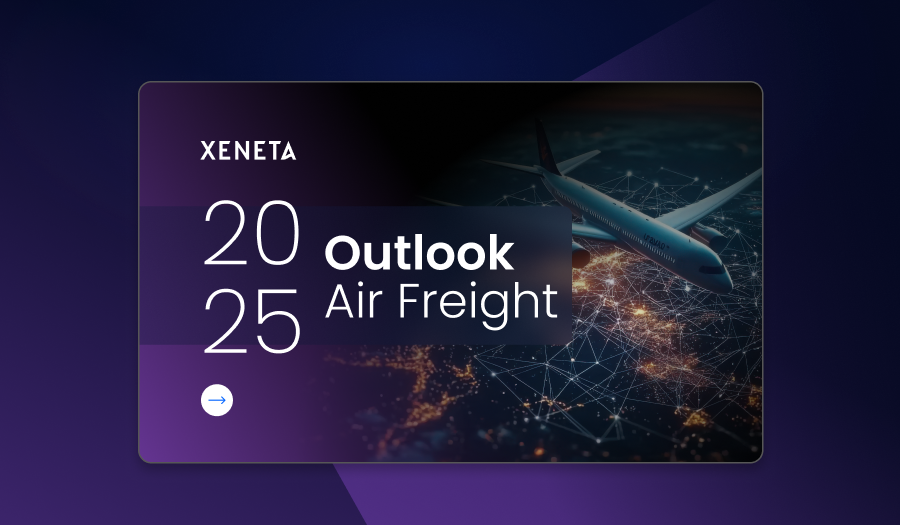Businesses are faced with a rapidly changing global environment. To respond promptly, an agile supply chain is a necessity. However, it requires freight benchmarking and market intelligence. Together, they help businesses manage costs, understand possible competitive threats, and determine trade lane options.
No matter how big or small a shipper is, benchmarking and freight intelligence should always be a part of supply chain planning.
According to the consulting company Bain & Company, the objective of benchmarking is to find examples of superior performance and understand the processes and practices driving that performance.
Companies then improve their performance by tailoring and incorporating these best practices into their operations.
What is Freight Benchmarking?
Succinctly put, freight benchmarking compares the ocean freight costs you pay against the actual real-time contracted market rates.
This process involves reviewing your freight rate history and the carriers used concerning the current market rates for the specific trade lanes and port pairs.
Benefits of Freight Benchmarking
Freight benchmarking has a myriad of benefits which can be categorized as below.
Complete analysis - Freight benchmarking allows you to thoroughly analyze spot vs. long-term contracted rates by measuring freight averages over time.
If properly analyzed, a freight benchmarking study will provide valuable insight into the competitiveness of your company's actual freight rates.
Enhancements - It also allows you to negotiate significant improvements to your carrier rate agreements while also helping you identify the rates you need to maintain your customers and be relevant in the market.
Understanding - Benchmarking will also help you understand, visualize, control, and standardize accessorial charges and other surcharges across your customer base.
Varied applications - Such benchmarking can be applied across your freight business units, local and regional markets, multimodal transport systems, trade lanes to identify and avoid potential root cause issues and allow you to evaluate the contracts, service providers, and practices and promote more cost savings to you and your customer.
What is Market Intelligence?
Market intelligence may be defined as a set of external data about a specific market or sector of industry.
In terms of freight shipping intelligence, it knows who is who in the market (whether it is carriers or your competition), their service routes, patterns of trade, the rates in the market, volatility, stability, sustainability.
The freight market is dynamic, and a customer can face various pressures and influences both from within the company and outside in terms of improving costs service, satisfying their customers with the available infrastructure, and ensuring continuity of their supply chain.
In terms of external forces, currently, with the shipping and freight market being so fragile and fragmented, customers need to keep up with the constant changes in the market, understand why things are changing and navigate these changes successfully.
In terms of internal forces, freight companies and shippers need to understand and manage the freight spend. The freight spend allocation is how it is allocated, to which partners, and whether those partners provide the required value to the company.
Benefits of Freight Shipping Intelligence
There are several benefits in using freight shipping intelligence, including:
- Many BCOs and OTIs use freight shipping intelligence to improve their freight processes. Regulatory changes also put pressure on the BCOs and OTIs in terms of costings, and the companies need to be up to speed in managing these changes.
- Freight shipping intelligence is also used to understand how the market shifts, how much inventory levels have to be maintained, and how often order fulfilments may be required.
- It provides an understanding for startups in which areas of the freight market they should enter and how the current market is.
- Freight shipping intelligence is also of equal importance for established companies that don't have business in a specific area and wish to find out more information about that area before they make the importance.
- Identifying the market rate for a particular zone/area saves time in repeatedly securing rates from the carriers.
- Market intelligence also plays a significant part in identifying who makes it to your core carrier list and who doesn't, as things constantly evolve.
Importance of Market Intelligence in Decision Making
Decision making is something that could make or break a company's progress, and every decision-maker within an organization, whether it is a C-Suite decision or a local decision on which carrier to book your freight with, requires a market-oriented approach and should have the relevant market intelligence at hand before they make these decisions.
The freight market intelligence will help these decision-makers gauge and identify potential problem areas at a tactical or operational level. These problem areas may include calculated risks such as transportation fuel programs, carrier procurement cycles, and payment terms or broader supply chain decisions.
Why Analyzing Constant Changes In The Ocean Freight Market Is Important
By doing these crucial analyses on an ongoing basis, shippers will better understand and insight into the markets they are serving and, therefore, become proactive instead of reactive to the constant changes in the ocean freight market.
Furthermore, by benchmarking, shippers will be able to gather data to determine if they are receiving the best rates and utilizing suitable carriers and ports. Also, they will likely gain a better understanding of contract terms.
Shippers may also gain a competitive advantage by achieving the most favorable freight rates and identifying trade lanes in which they could further lower costs and reduce time in transit.
Freight Shipping Intelligence: How To Identify Opportunities
In addition, shippers will also be able to identify additional opportunities such as potential partners, new services, and/or products and expand into new geographies.
Benchmarking and market intelligence offer many benefits, and thanks to technology developments, one can automate much of the process. However, before one jumps into this, one must decide on a few key points:
By planning and implementing a benchmarking process, shippers will receive valuable data that can be analyzed and utilized in several ways, such as to determine how well shippers are performing in the market, can use it as a competitive advantage, can identify and evaluate new business opportunities. No matter the size of the shipper, benchmarking will level the playing field by allowing big and small shippers to compete on the same level.


-1.jpg)



